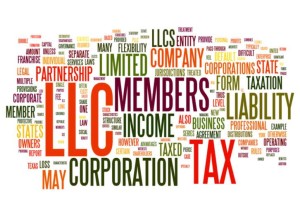Tax Differences Between Corporation and LLC
It is very important to establish a business structure at the time you launch your company. Not doing so will result in your business being classified as either a sole proprietorship or general partnership. There is no distinction between the business and its owner under these two classifications. This means that your personal assets could be seized if your business is sued or falls behind on its financial obligations. International Development Services has offered tax planning services to entities of all types. The most popular business structures are Limited Liability Company (LLC) and C Corporation (or just corporation), mainly because the owner’s personal liability is minimized. However, the two have very different approaches to taxation. It’s a good idea to utilize tax planning services to determine how your organization will be taxed.
An LLC is considered a pass-through entity by default. This means that the organization isn’t responsible for paying income taxes for its profits. Instead, the profits and losses are passed through and reported on the personal tax returns of the members or owners of the organization.
A corporation is considered a non-pass-through entity, which means that the company is a separate legal entity and is responsible for submitting a tax return and paying income taxes.
It’s common for double taxation to occur for corporations, usually when owners take out profits, which have to be reported on their personal tax returns.
However, corporations and LLCs can both elect to be taxed as pass through entities. Tax planning services can prove useful for determining how to classify your business for tax purposes.
C corporations offer more flexibility in income shifting, compared to S corporations and LLCs. For example, the owners of LLCs are required to pay taxes on their share of profits, even if the money remains within the business. The owners of C corporations only have to pay taxes on the dividends they receive. A tax planner can advise you how to allocate your company profits to take advantage of lower income tax brackets.
There are other aspects to tax planning that must be addressed, such as social security and Medicare taxes, employee benefits and deductions. The tax planning services provided by International Development Services can be employed to ascertain the best approach to taxation.



